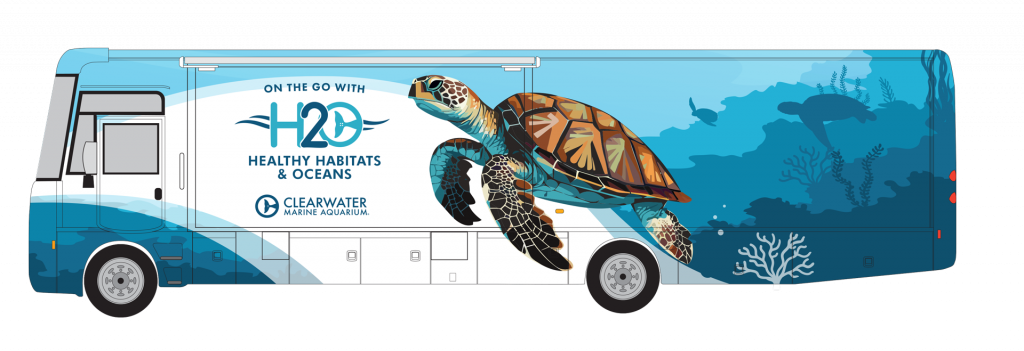Bring H2O on the go to you! Our 38-foot traveling exhibit is filled with interactive experiences that get participants thinking, questioning, and doing.

Participants dive deep into the fascinating world of sea turtles and Florida’s fragile coastal ecosystems— connecting exhibit lessons with the real-world challenges of conservation. The H2O Mobile Exhibit helps participants see how their curiosity can lead to solutions for protecting wildlife and the environment. It’s more than a fun day—it’s a chance to inspire a generation of ocean stewards.
Built for schools. Perfect for everyone. The H2O Mobile Exhibit was designed with teachers and students in mind, but its reach goes far beyond the classroom. Schools can use it to bring science lessons to life, while libraries and community centers can host it as an engaging way to connect with families. It’s a hit at STEM nights and learning fairs, offering hands-on activities that spark curiosity for all ages. Even parties and private gatherings can turn into unforgettable experiences with a sea turtle twist.
For schools groups, we recommend allotting 45-minutes per class of up to 30 students.
Pricing
| Mobile Exhibit Program | Price |
|---|---|
| Full Day (4-6 Hours) | $550 plus mileage |
| Half Day (2-3 Hours) | $300 plus mileage |
| Full Day (4-6 Hours) Title 1 Schools | $500 plus mileage |
| Half Day (2-3 Hours) Title 1 Schools | $250 plus mileage |
Locations greater than 75 miles away from Clearwater Marine Aquarium subject to additional lodging and mileage fees.